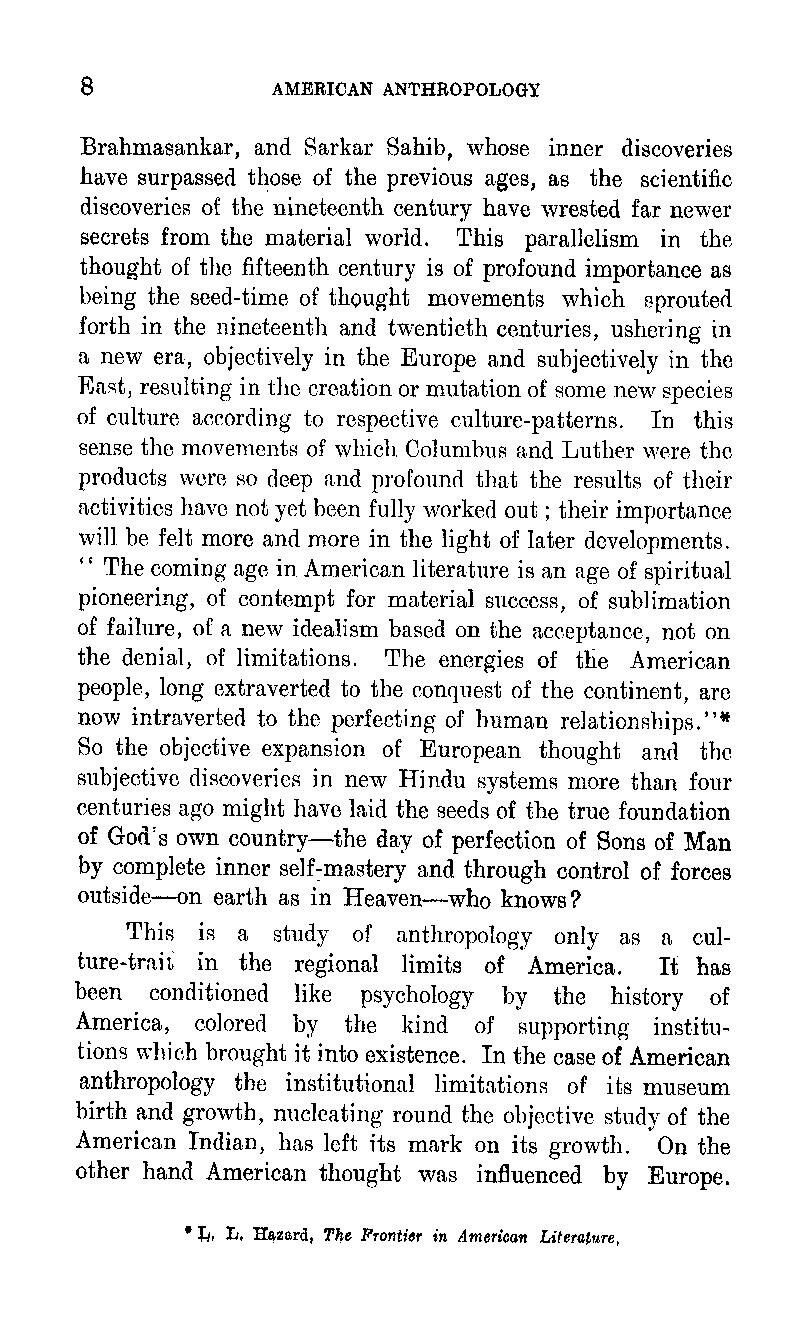Brahmasankar, and Sarkar Sahib, whose inner discoveries have surpassed those of the previous ages, as the scientific discoveries of the nineteenth century have wrested far newer secrets from the material world. This parallelism in the thought of the fifteenth century is of profound importance as being the seed-time of thought movements which sprouted forth in the nineteenth and twentieth centuries, ushering in a new era, objectively in the Europe and subjectively in the East, resulting in the creation or mutation of some new species of culture according to respective culture-patterns. In this sense the movements of which Columbus and Luther were the products were so deep and profound that the results of their activities have not yet been fully worked out; their importance will be felt more and more in the light of later developments. "The coming age in American literature is an age of spiritual pioneering, of contempt for material success, of sublimation of failure, of a new idealism based on the acceptance, not on the denial, of limitations. The energies of the American people, long extraverted to the conquest of the continent, are now intraverted to the perfecting of human relationships."[1] So the objective expansion of European thought and the subjective discoveries in new Hindu systems more than four centuries ago might have laid the seeds of the true foundation of God's own country—the day of perfection of Sons of Man by complete inner self-mastery and through control of forces outside—on earth as in Heaven—who knows?
This is a study of anthropology only as a culture-trait in the regional limits of America. It has been conditioned like psychology by the history of America, colored by the kind of supporting institutions which brought it into existence. In the case of American anthropology the institutional limitations of its museum birth and growth, nucleating round the objective study of the American Indian, has left its mark on its growth. On the other hand American thought was influenced by Europe.
- ↑ L. L. Hazard, The Frontier in American Literature
